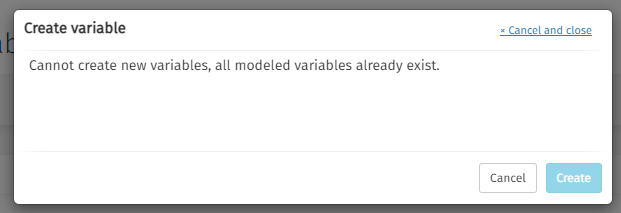Data Objects
In the Data Objects section there are different items available that can be explored and controlled by the user.
These items are:
Data Deployments
By default, the deployment section is opened. In this section, you can find all the data object deployments that were completed in your environment. The 'Name' and 'Tenant identifier' fields can be used to narrow down the list of deployments.

Clicking on a deployment opens a new page with detailed information about this deployment.
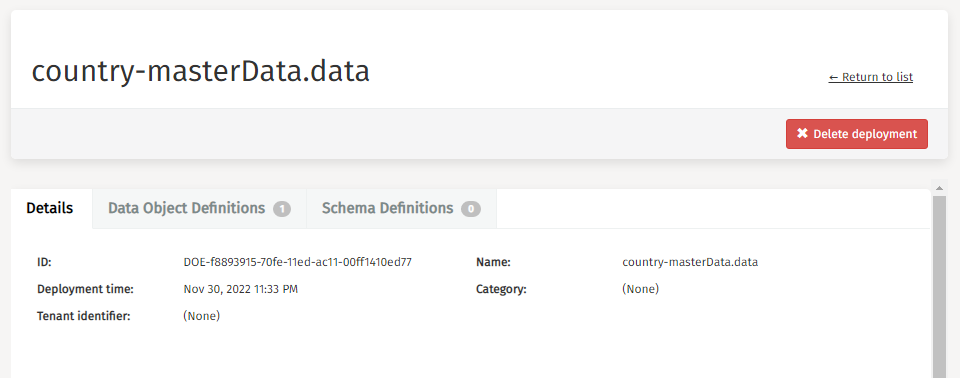
The Delete deployment button is used to delete that deployment from your environment.
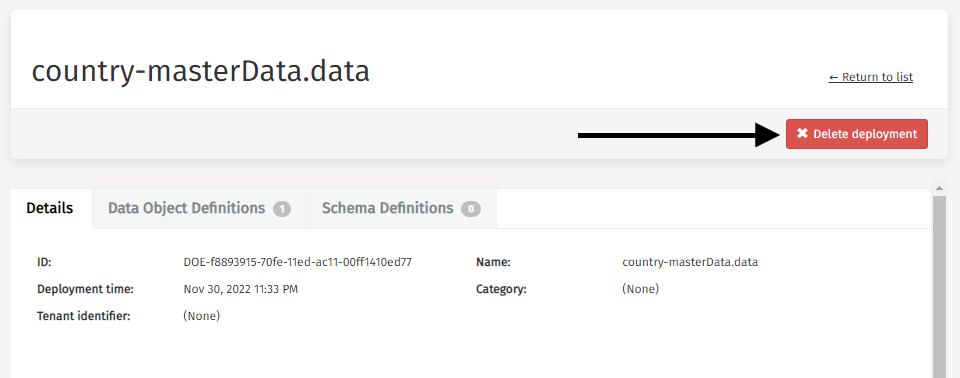
Data Object Definitions
The second tab, Data Object Definitions, presents a filtered overview of all data object definitions that belong to the deployment you selected earlier.

It is also possible to browse through all definitions across all data objects. This is done by clicking 'Definitions' in the side panel. There are some filters in the header available to assist you in your search for a particular data object definition.
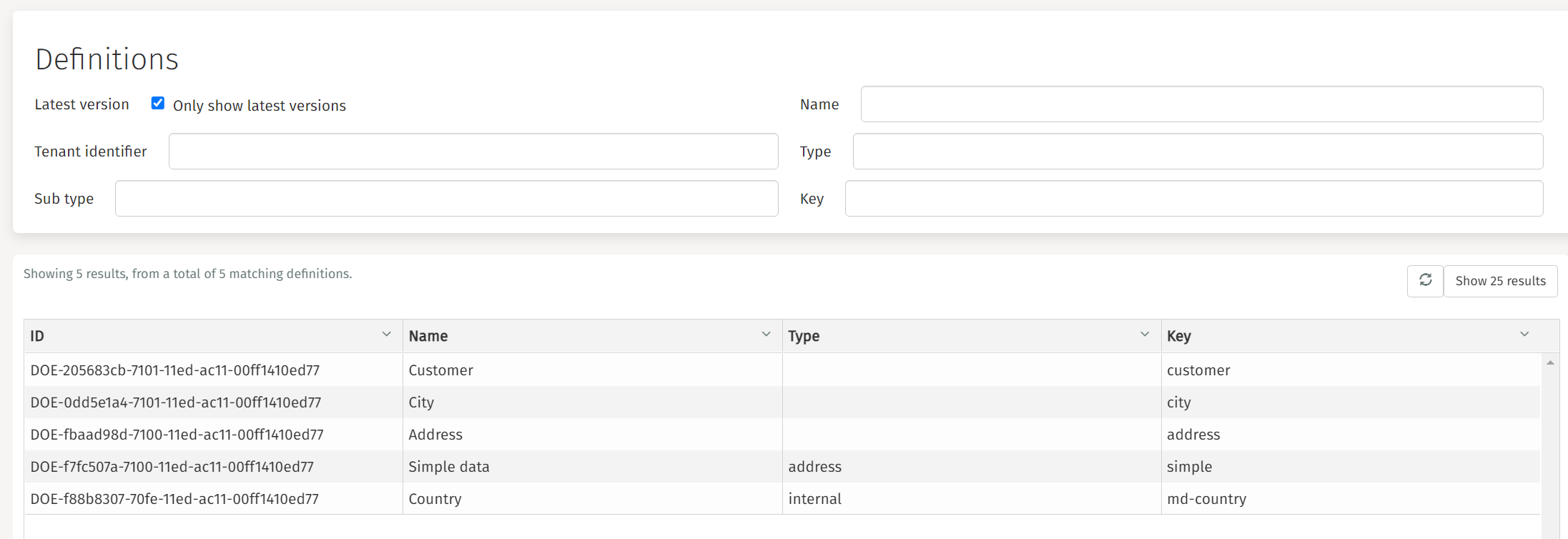
Clicking on a data object definition opens a new page with detailed information about this data object definition.
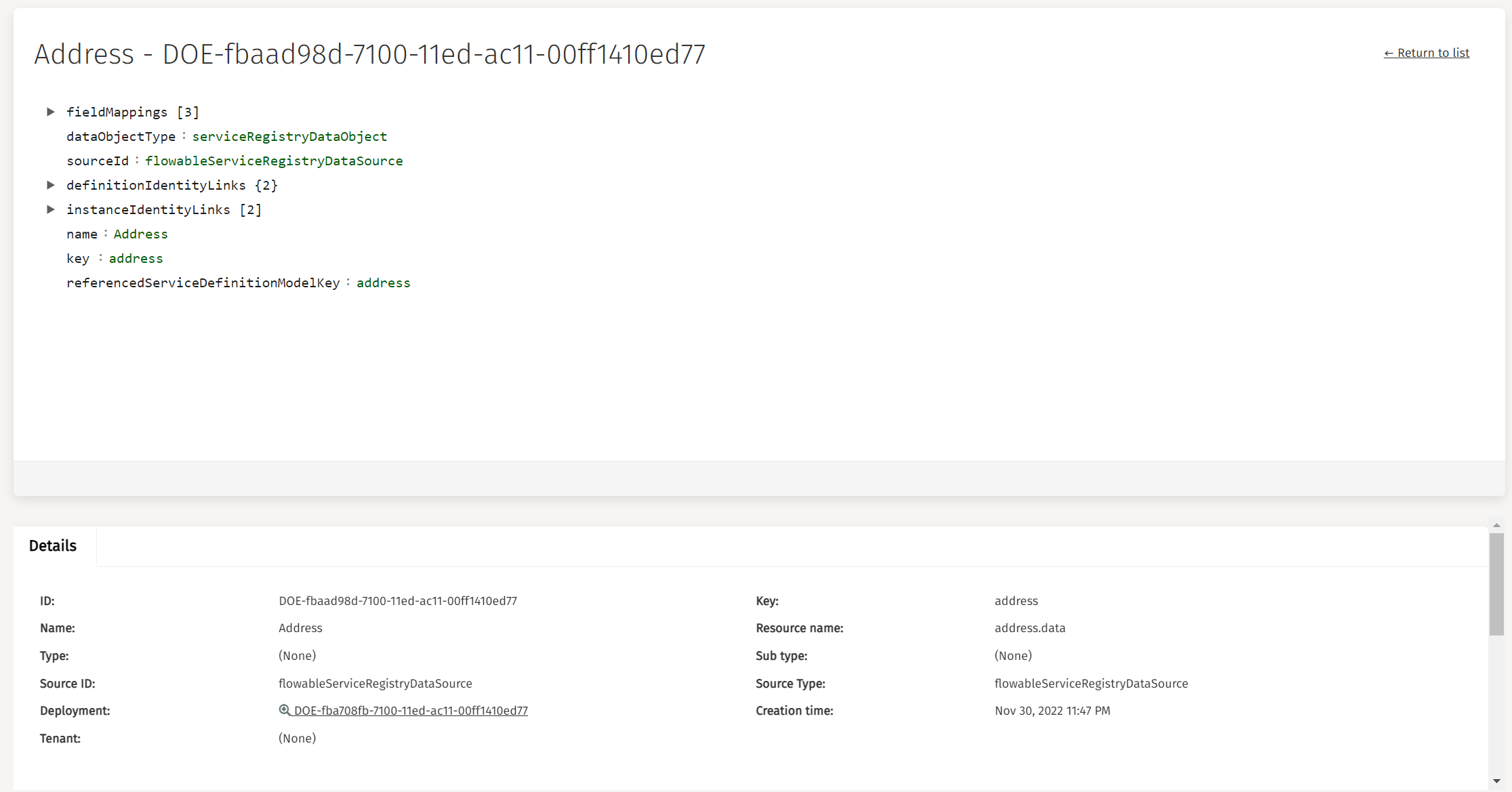
Database Data Object Definitions
With 2025.2.01+ we added the Instances tab for data object definitions of type database.
That allows you to search for instances, delete or update existing instances or create new ones.
Search Instances
You can search for instances based on the search operations of the corresponding data object service.
All the input parameters of the operation are available as filter fields.
In this example, we defined a search operation that uses the email field with a like filter.

Create Instances
You can create instances based on the create operations of the corresponding data object service.
The default create operation contains all fields of the data object definition.
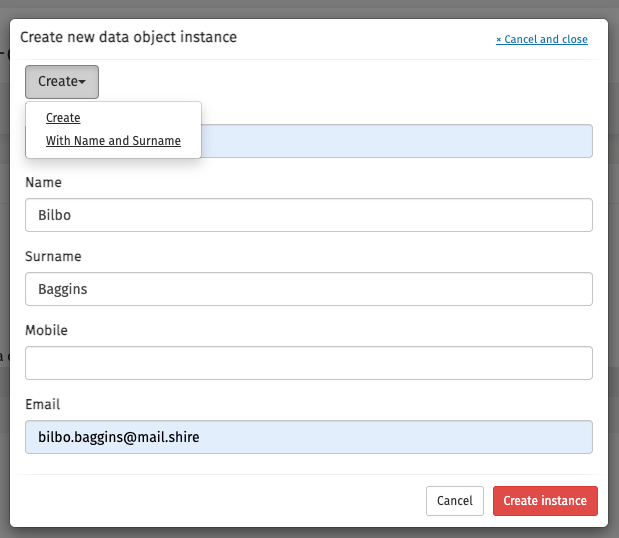
Update Instances
You can update instances based on the update operations of the corresponding data object service.
In this example, we defined an update operation that uses the id field to find the instance and update the email field.
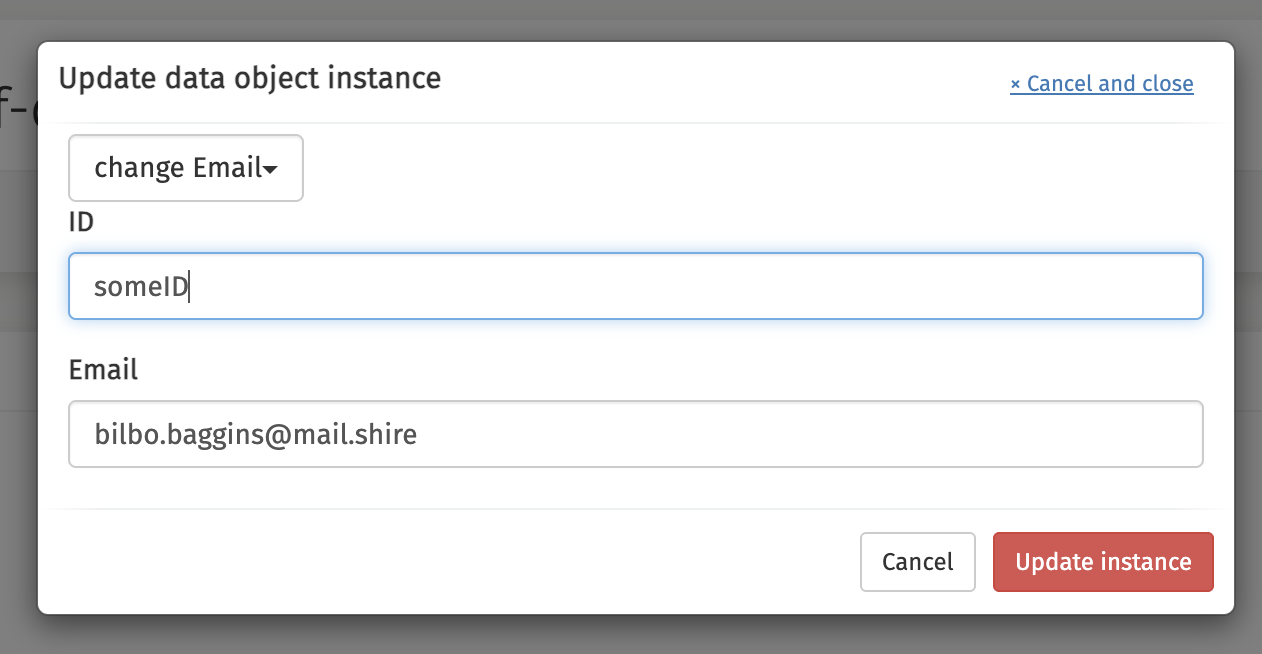
Delete Instances
You can delete instances based on the delete operations of the corresponding data object service.
In this example, we defined a delete operation that uses the email field to find the instance and delete it.
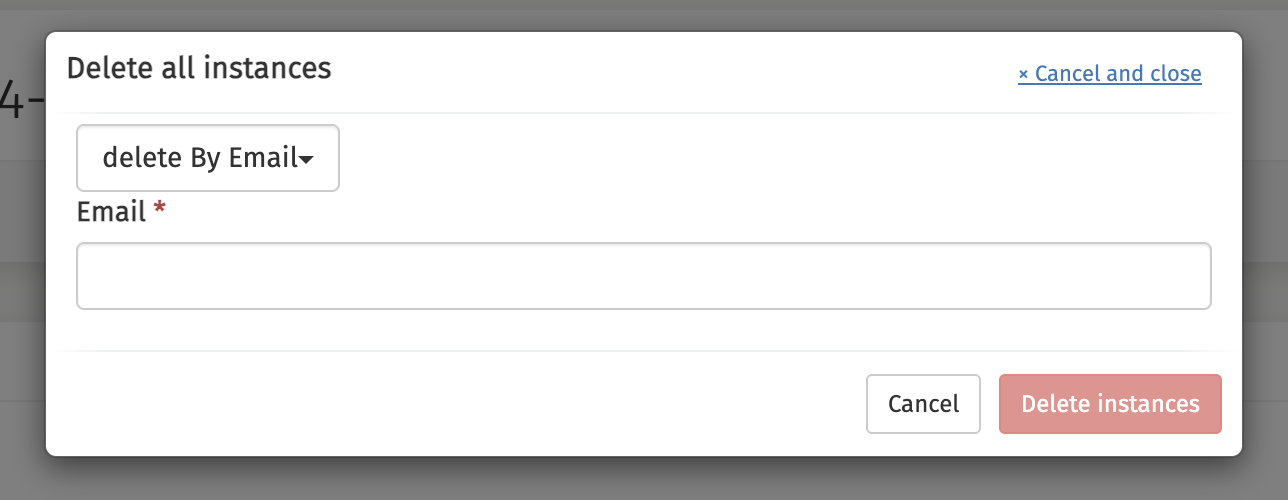
Master Data Object Definitions
If the dataObjectType of the opened definition equals masterData, you are also able to:
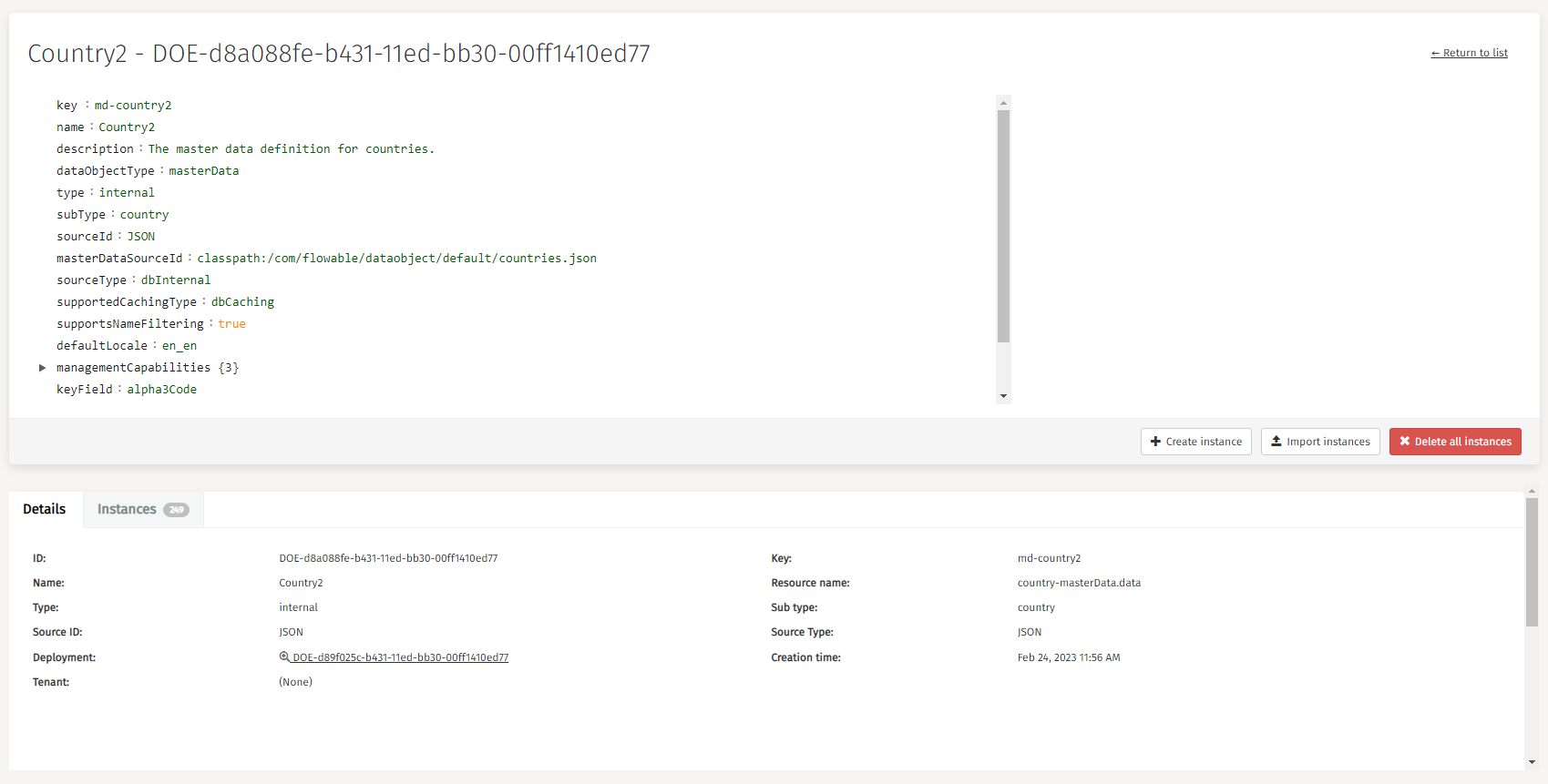
- delete all instances of the current master data definition.
- import instances for that master data.
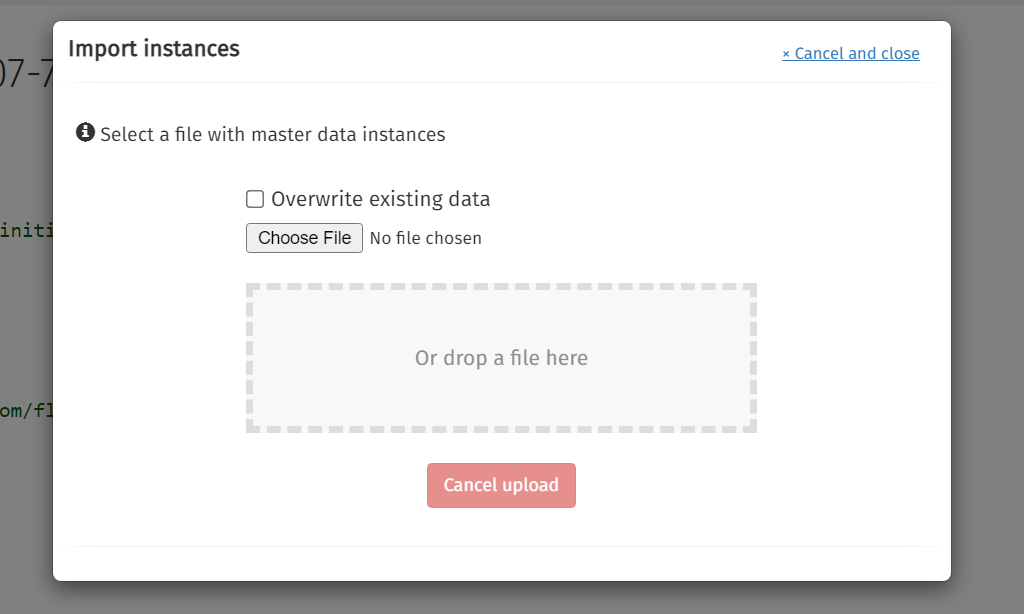
- see a filterable overview of all instances of that definition. Clicking on one instance will open the details view. v3.14.0+

- create a single master data instance v3.14.0+
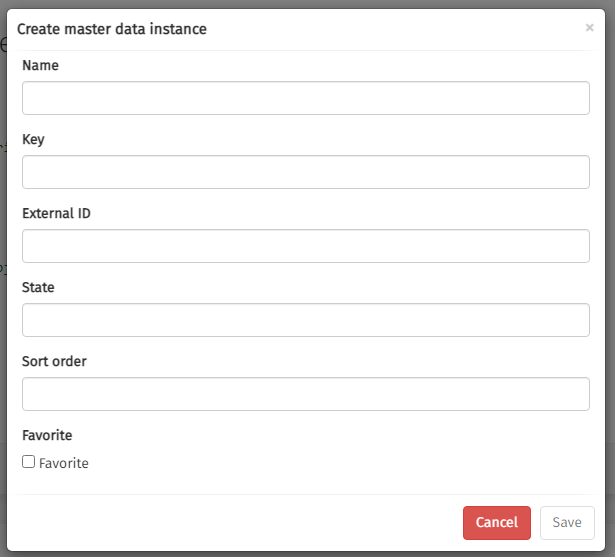
Schema Definitions
The third tab, Schema Definitions, presents a filtered overview of all data object schema definitions. Changes to data object definitions might require modifications on tables, columns, constraints, etc. within the database. This interference in the Flowable environment is substantial. To avoid side effects, these changes are not automatically done during deployment and require user interaction to be rolled out.
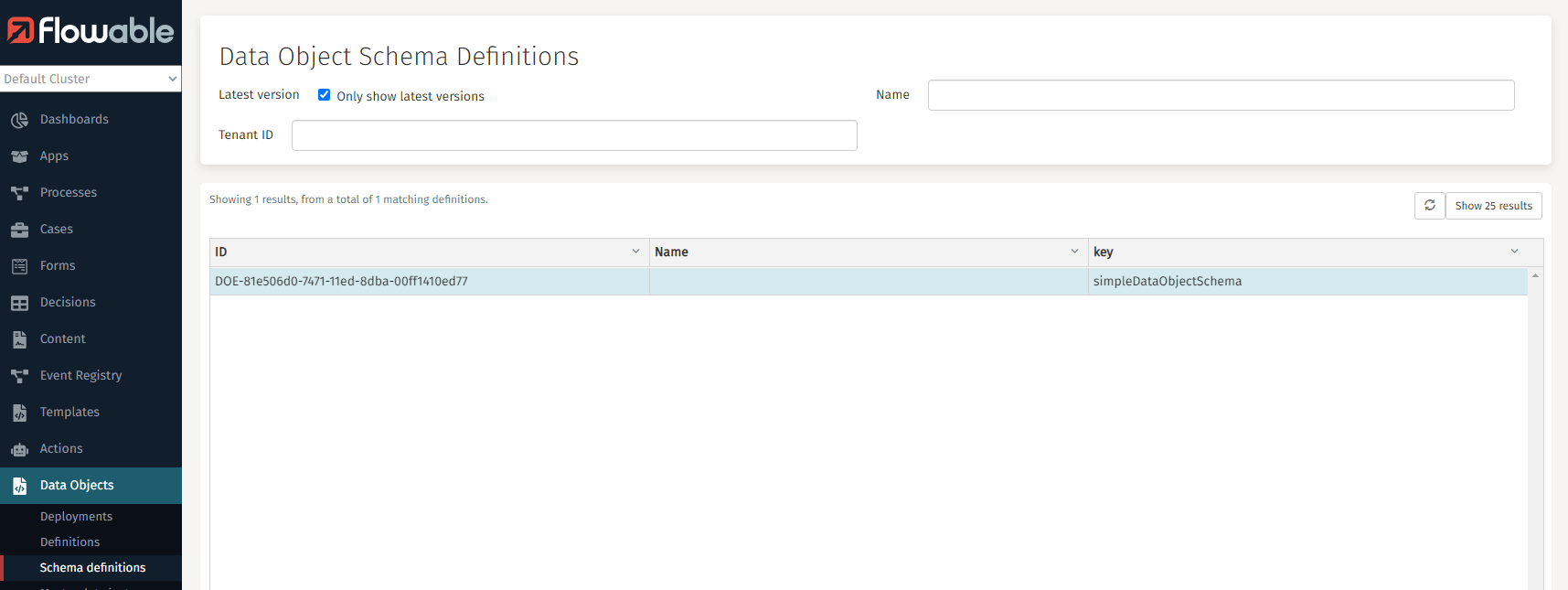
Clicking on a schema definition opens a new page with detailed information about this schema definition.
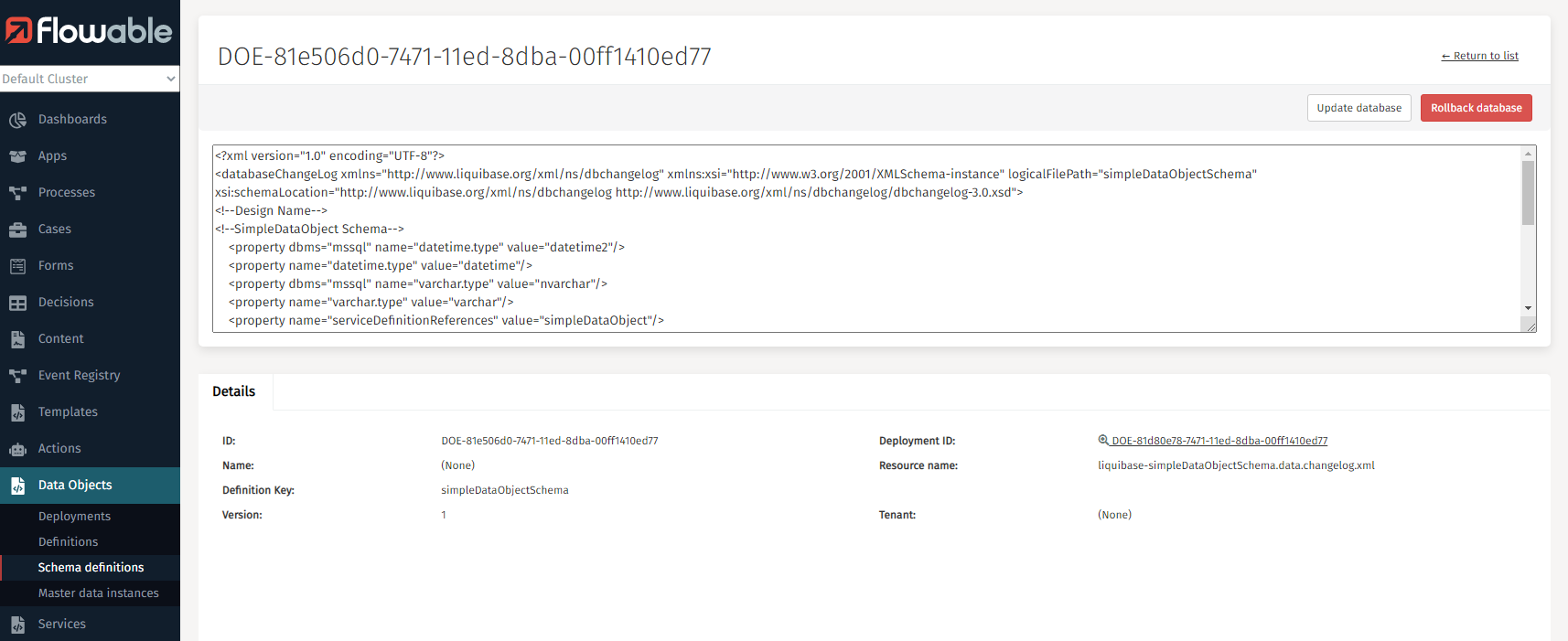
You can use the buttons to either update your database or roll back the changes.
Learn more about schema definitions
Master data object definitions are handled differently. They do not require database updates.
Master Data Instances
Clicking the Master Data Instances section results in an overview of all available master data instances.
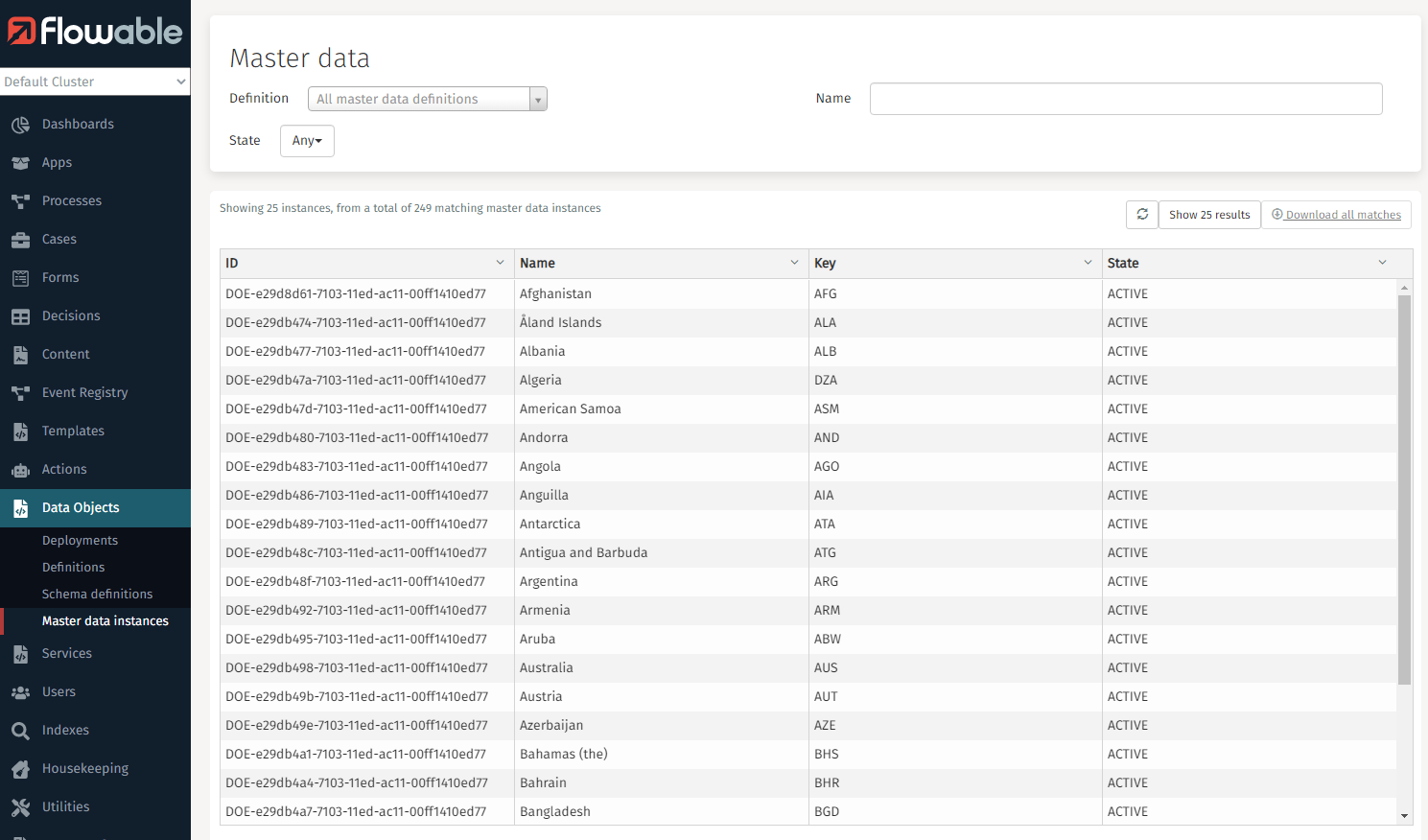
You can use the Definition filter to reduce the instances based on one data object definition.
Selecting the Definition filter enables the Download all matches button. Clicking it will download all matches in a JSON format.
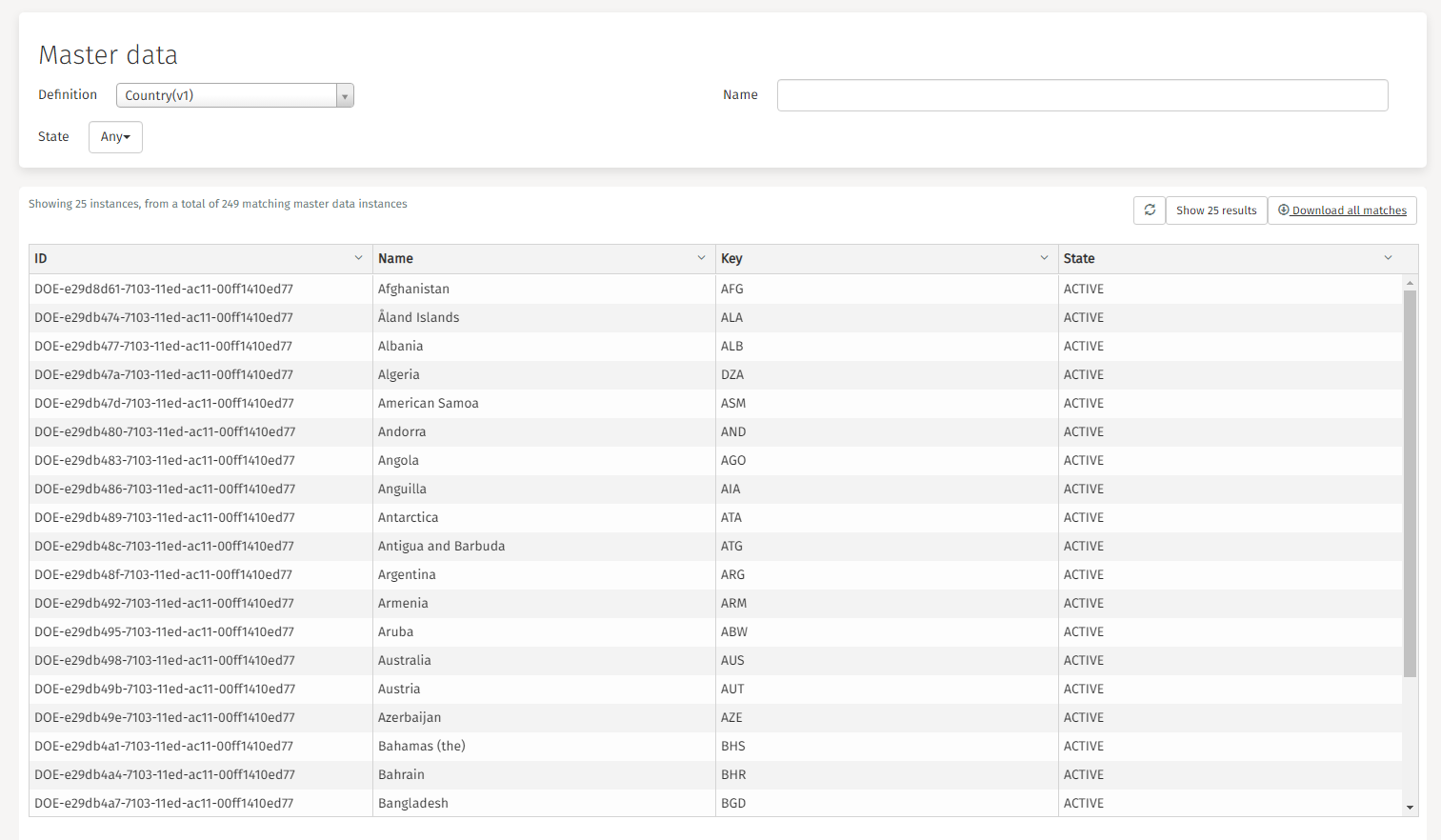
The downloaded json file is immediately (re)importable.
Single Master Data Instance
v3.14.0+Clicking a single master data instance from the master data instances view or the instances tab of master data object definitions will open the details view for single master data instances.
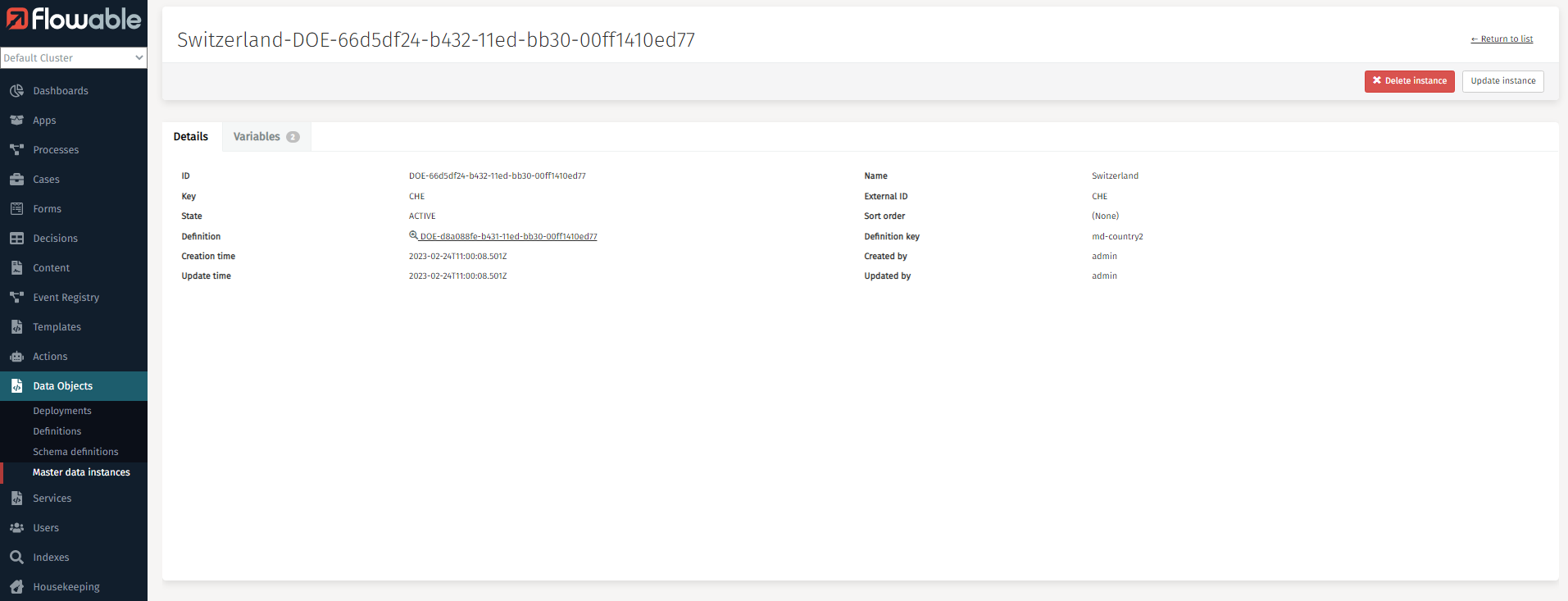
You can also delete or update the current master data instance.
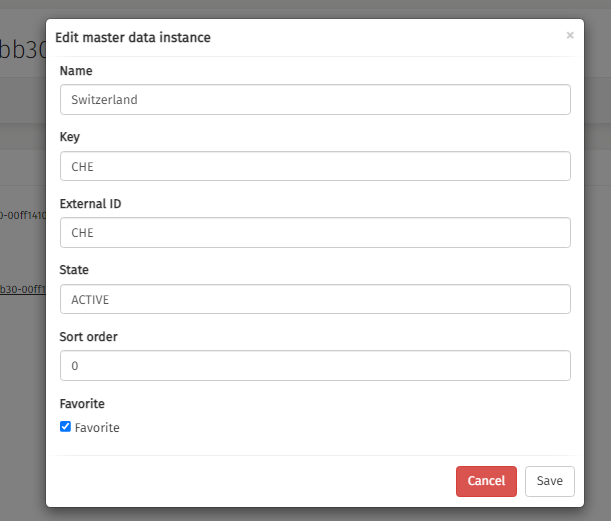
Master Data Instance Variables
v3.16.0+Master data instance variables can be created, deleted and updated:

You can only create variables defined in the master data object definition.
